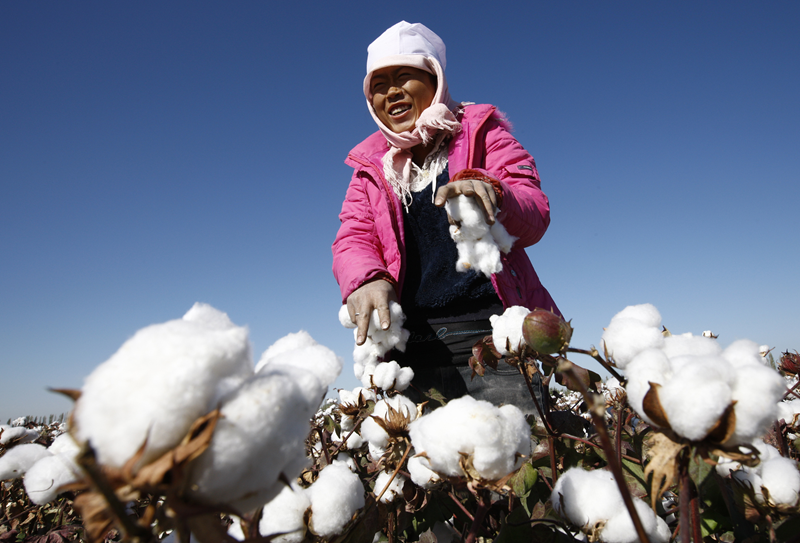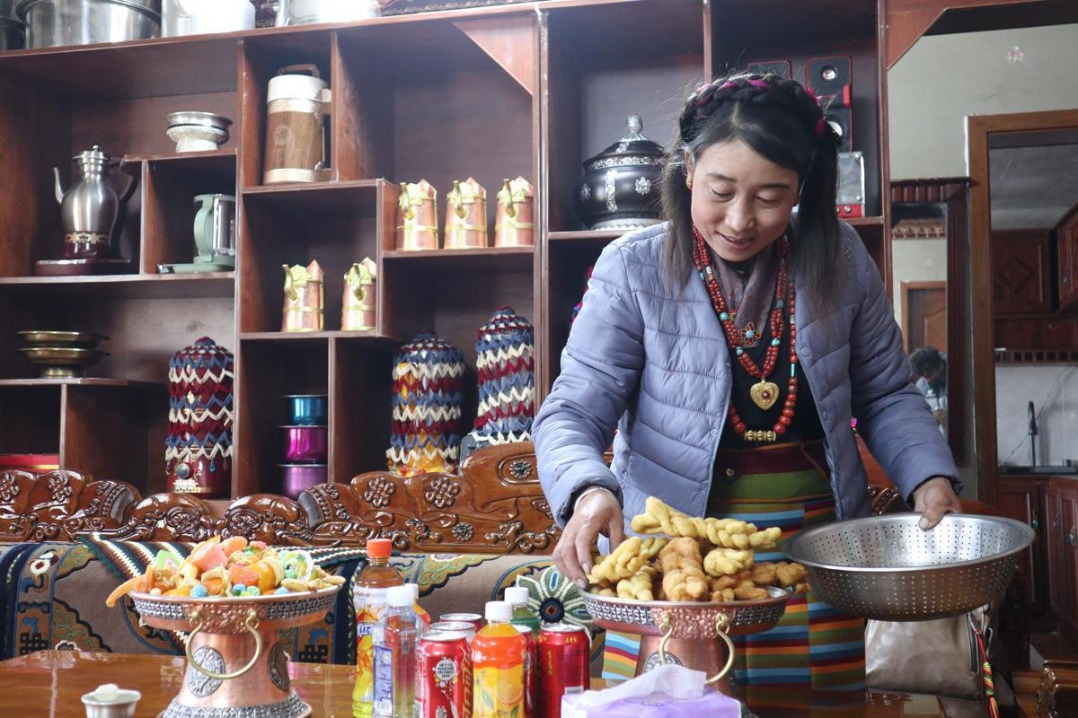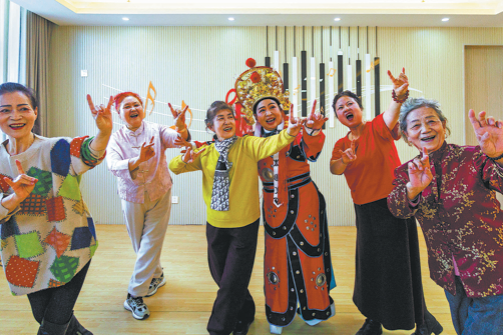Xinjiang cotton growers buoyant as prices rise


Outrage voiced
In March, public outrage was expressed in China after international brands such as H&M and Nike chose not to source cotton from Xinjiang, citing allegations of forced labor.
Companies that issued statements on their decision to halt sourcing cotton from the region are members of the Better Cotton Initiative, or BCI, an NGO based in Switzerland.
On March 30 last year, BCI said it would suspend cooperation with licensed farmers in Xinjiang during the 2020-21 cotton season due to the allegations of forced labor.
News of how the BCI decision was reached emerged on Wednesday, when the national security authority revealed details to Global Times of the BCI "investigation" with Verite, a self-proclaimed "independent and nonprofit" civil society organization based in the US.
The investigation was commissioned to a company in Shenzhen, Guangdong province, with connections to Verite. No one from Verite responsible for the task went to Xinjiang. The report submitted to BCI, which cited unjustifiable claims from anti-China organizations and reached a predetermined guilty conclusion, was based on material collected online and written under the guidance of Yao Wenjuan, the legal representative of the Shenzhen company, an employee from Verite told Global Times.
Established in 1995, Verite said it "partnered with hundreds of corporations, governments and NGOs to highlight labor rights violations in supply chains". In 2006, the company sent Yao, its Chinese employee, to set up a workshop in Shenzhen, which was later registered as a company in Verite's name and dealt with the organization's businesses in China, according to the national security authority.
BCI headquarters invited Verite to join the investigation into whether forced labor was being used in cotton-related industries in Xinjiang. A report titled "Research on Forced Labor in Cotton Production in China with a Specific Focus on Xinjiang" was produced by the team from the Shenzhen company.
The national security authority said it found no mention in the Shenzhen company's financial reimbursement records of any employee going to Xinjiang to conduct a field survey for the BCI project.
An employee from the company, who requested anonymity, told Global Times she was assigned to the project in February last year and asked to "collect" evidence of "forced labor" in Xinjiang.
Yao provided a large amount of "materials" for staff members to refer to, including a report by anti-China "scholar" Adrian Zenz on claims of forced labor in Xinjiang, the employee said.
The employee and another colleague found no evidence of forced labor in Xinjiang. In May last year, the employee handed the first draft of the report to Yao, which "she (Yao) was not satisfied with". Yao wrote in an email that she felt it was "hard to submit it after comparing ours with the report written by our colleagues in the US."
The employees were asked to revise the report. Although no evidence of child labor was found in Xinjiang's cotton production industry, Yao insisted on including in the report "there is a very low possibility that students were organized on a large scale to pick cotton, but there are still risks for underaged children in a family taken on for cotton-picking after school or on weekends", the employees said.
On Aug 2 last year, Yao showed the two colleagues the final report put together by the Verite headquarters and reviewed by BCI. It only gave Yao's viewpoints.
Another Verite China employee said there are many presumptions of guilt in the report. For example, the version given to the headquarters states, "Existing research indicates the possibility of coercion by local government officials of poor rural laborers to take part in cotton picking under the poverty alleviation program."
BCI headquarters appeared to be satisfied with use of the word "coercion" to describe the poverty alleviation program. On July 10 last year, a BCI reviewer stated, "Thanks, this is typically the sort of analysis which adds value," the employee said.
























